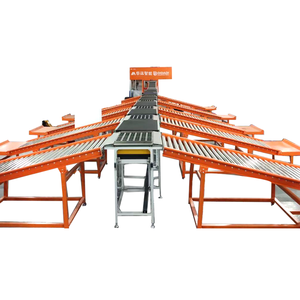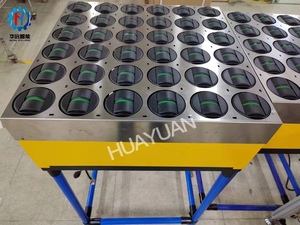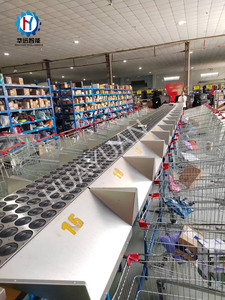Understanding Low Friction Conveyor Rollers
The low friction conveyor roller is an essential component in various material handling systems, designed to facilitate the efficient movement of goods and products. These specialized rollers are engineered to reduce the amount of friction encountered during the transportation of materials, thereby optimizing performance and extending equipment life. Ideal for high-speed production lines, low friction conveyor rollers provide significant advantages in terms of energy efficiency, operational speed, and maintenance costs.
Types of Low Friction Conveyor Rollers
There are several types of low friction conveyor rollers, each designed to cater to specific industrial needs. Understanding these types can help in choosing the right roller for your application:
- Plastic Rollers: Made from lightweight durable materials, these rollers offer exceptional wear resistance and low friction. Ideal for lighter loads and applications requiring easy movement.
- Steel Rollers: These provide robustness and durability for heavier carrying capacities. Often coated with specialized finishes to minimize friction.
- Rubber Coated Rollers: Designed to grip materials securely during transport, these rollers reduce sliding and improve hold, conducive for bulk and fragile items.
- Ball Bearing Rollers: These rollers feature integrated bearings, allowing for smoother motion and ultra-low friction levels, perfect for high-speed operations.
Applications of Low Friction Conveyor Rollers
The low friction conveyor roller is applicable across various industries due to its versatile design and functionality. Here are some of the common applications:
- Manufacturing: Used extensively in assembly lines for seamless product movement, reducing manual effort and speeding up production.
- Warehousing: Essential for automated storage and retrieval systems, these rollers help in swift transportation of goods while minimizing jams.
- Food & Beverage: Compliance with sanitary standards makes them suitable for transporting food products, further enhanced by their low friction to prevent product damage.
- Logistics: Low friction rollers support efficient package handling and sorting in distribution centers, improving throughput.
Advantages of Using Low Friction Conveyor Rollers
Investing in low friction conveyor rollers offers numerous benefits that elevate operational efficiency:
- Enhanced Energy Efficiency: By minimizing the resistance encountered during operation, these rollers require less power to operate, reducing energy costs.
- Lower Maintenance Costs: Their robust construction and low friction design result in decreased wear and tear, extending service life and reducing maintenance frequency.
- Improved Speed: With reduced friction, these rollers facilitate quicker transportation of materials, contributing to faster production cycles.
- High Load Capacity: Many low friction rollers are designed to handle substantial weights without compromising performance, making them suitable for heavy-duty applications.














































